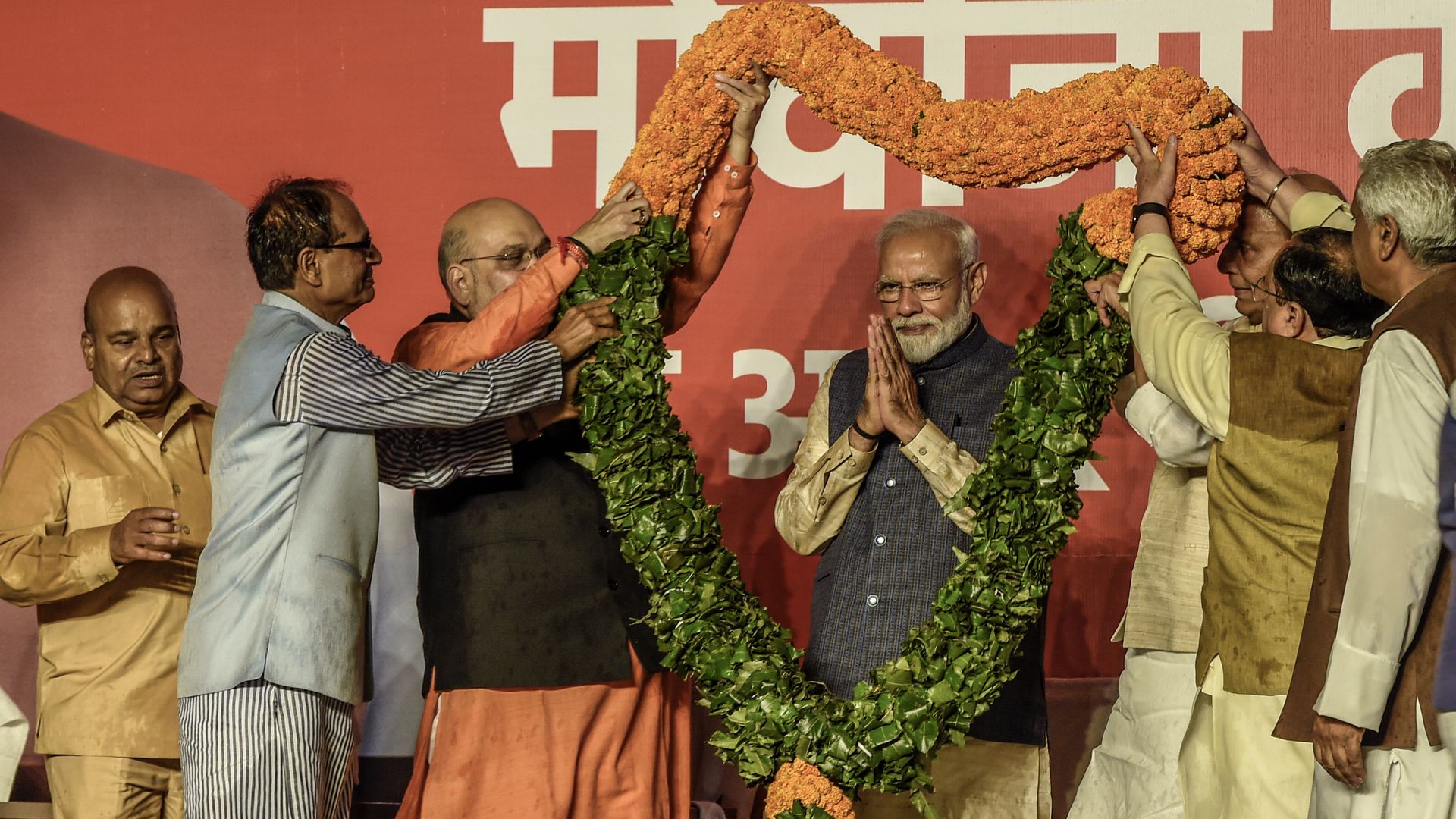May 23, 2019 - World
Expert VoicesModi’s election victory likely to extend strong U.S.–India ties
Add Axios as your preferred source to
see more of our stories on Google.

Indian Prime Minister Narendra Modi celebrating with BJP workers. Photo: Atul Loke/Getty Images
